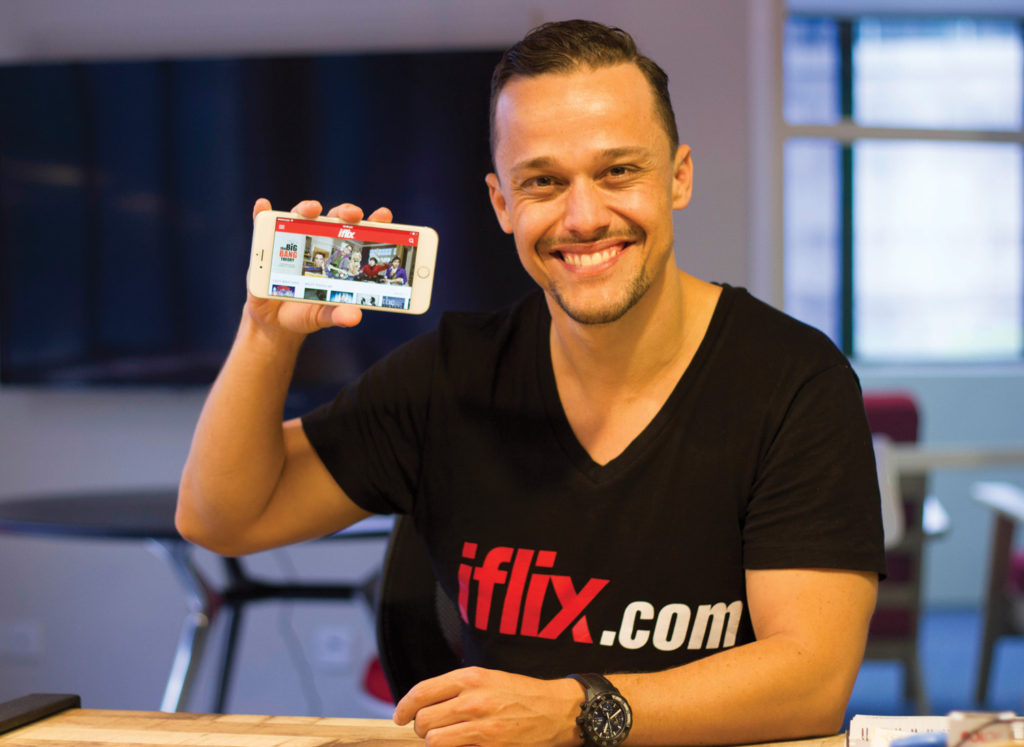
There will be 2.5 billion people with smartphones in the emerging markets, excluding China and India by 2020. For most of them, that will be their primary television screen, their full cable TV. In many countries, the cable TV is not reaching the mass market and the internet TV revolution is almost bypassing the traditional cable business.
What is iflix’s business?
We are trying to aggregate a product specific to emerging markets alone. iflix is not a streaming product at all, but simply to “download and watch offline”. Piracy also works the same way. Most people in emerging markets don’t have consistent internet access. Neither can they afford 4G mobile data. The way they tend to access the internet is by sharing Wi-fi, at an internet cafe, a friend’s home or elsewhere.
iflix is not based on real-time streaming but the ability to download and watch your favourite shows when you’re offline. We’re trying to build a product that can actually compete with piracy. People pirate because they want access to great shows that they can’t find anyway. That’s the need we’re trying to meet.
What is iflix’s strength?
What makes a company is our customers and not the shareholders. It’s easier to raise capital than to make customers happy. The honest strength of iflix is that it simply works. That’s the number one feedback that we receive.
When you’re obsessed with emerging markets, you’re able to build a great product. We have a very broad range of content and we use piracy data to inform us of what’s required for each market. The content is then censored and subtitled according to market segment. While consumers often compare us to Netflix, we are actually a very different product and experience altogether. We cost US$2 to $3 per month for 1500 seasons of 800 TV shows, 3000 movies, 3000 hours of kids’ content and 1500 hours of Korean content. For every different market (Philippines, Thailand, Indonesia), it’s also 1500 to 2500 hours of local content.
What is the depth of your library?
We have about 15,000 hours of content in each market. About half is Western, 25% to 30% is regional based of Korean and Chinese dramas and Japanese anime and another 20% of local content. This defers from market to market.
In the Philippines, local content is extremely popular. In Malaysia, Chinese and Korean dramas often do better than local shows. What’s interesting is, the number one experience on iflix is binge-watching. Every single show is 100% on-demand and you can watch it whenever you desire and even download the next 10 episodes of your favourite shows. iflix in Indonesia is a highly curated customised 14,000 hours of specific content for Indonesians. We use data from piracy and social media to inform us about tastes and what the people like to view. We’re an aggregator with over 120 studios.
What is the array of genres in your library?
A good mix of genres work for us – comedy, drama, factual, etc. What’s interesting about internet TV that’s different from traditional television is that there are often niche audiences for certain genres. We find an incredibly passionate audience around genres like horror, anime and manga. They haven’t been able to find such content through traditionally piracy sources. These niche categories do disproportionately well on internet TV because they’re not being well-served by terrestrial TV.
Programmes such as CSI are episodic driven. You can get away if you miss it for a week. But what about shows like House of Cards, Game of Thrones, Orange Is The New Black, etc? What happens if they’re not telecasted on a week-to-week basis like a 13-hour drama?
Linear TV is obsessed with ratings while internet TV is passionate about depth. Having the full set of over 200 television shows means, you can re-discover a new show, like Orphan Black, Mr Robot, Black Sails and Sons of Anarchy which have never been broadcast in Asia other than on iflix. These are huge-budget and very successful global shows with huge piracy in emerging markets that you can’t get legally in most markets. We see ourselves preventing the piracy market and providing a legal option to content.
What do you foresee as some challenges and opportunities ahead?
We have a massively growing middle class in emerging markets who are incredibly well-connected via the internet, on very high-end devices. In the next 10 to 20 years, we will have billions of people joining the middle class and getting connected to the internet on mobile devices. The growth of international content consumption depends on all of us. If we could provide them a proper legalised service at an affordable price, then there are endless opportunities, it’s an enormous growing market.
We’ve launched in the Philippines, Malaysia and Thailand. We have announced a partnership with Telkom Indonesia and Indosat Ooredoo. We will be coming to Indonesia in the next few months. Then, we will focus on markets such as Vietnam, Sri Lanka, Cambodia, Myanmar, etc. We only focus on emerging markets. We will not go to Singapore, Hong Kong, Taiwan, Korea or Australia. At home in Singapore, I have a 2GB connection and it’s a very different experience.
The recommended streaming speed for Netflix is between 2MB to 4MB per second globally. The average streaming speed on iflix is 650KB a second. What you’re talking about are people on an average of 3G or Wi-finetworks who need to get a great service. You end up pushing all your technology thinking and resources available will solve the problems exceptionally well. What you don’t try is to compete headon with the big boys in markets like Singapore.
Who are your investors?
We publicly announced that Sky invested US$45 million and Emtek invested about US$5 million. In total, iflix has raised US$90 million so far. It’s a multi-billion dollar opportunity. There’s a generational shift in the way people consume content. While it’s a significant amount of capital, you’ve got to spend to pursue the opportunity which is a multi-billion dollar prospect.








